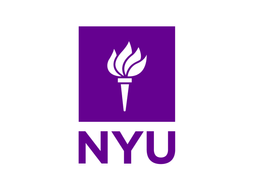6 AI Extracurriculars You Should Consider as a Middle School Student
Technology drives growth, and if you want to enter this industry, it can be helpful to start early. An easy and fun way to do this is by learning coding and artificial intelligence, the languages of the future. Engaging in computer science (CS) and artificial intelligence (AI) extracurriculars in middle school has many benefits. You can participate in activities that cultivate problem-solving, critical thinking, and collaboration.
Additionally, pursuing AI-related projects demonstrates initiative, intellectual curiosity, and a willingness to engage with emerging fields. Exploring AI early can set you up for success in high school.
Here are 6 AI-focused extracurriculars we have curated for ambitious middle schoolers, including what makes them valuable, examples of programs, and what you'll be doing as part of each activity.
1. Join an AI Club at School
Joining a school AI club offers a collaborative environment where you can explore complex AI concepts. Clubs host regular meetings, coding challenges, and discussions about current developments in AI. They provide a consistent learning schedule and a sense of community. They’re a great way to learn beyond the classroom while working on group projects and engaging in discussions. Clubs can also help prepare you for events like hackathons and coding competitions, which we’ll cover in more detail below.
Examples: While many schools host general coding or STEM clubs, specific AI clubs can be rare. Look for clubs focused on robotics, coding, or data science. Programs like the AI Trailblazers Program offer structured lessons for middle schoolers that can supplement school clubs.
What you’ll be doing: Club activities could include designing a chatbot that answers trivia questions, programming simple algorithms for data sorting, or analyzing datasets to identify patterns. More advanced clubs might introduce neural networks or ethical dilemmas in AI.
Difficulty Level: Beginner to Intermediate
Location: School or online platforms
Resources/Experience Required: No prior experience is required; enthusiasm and curiosity are key.
2. Participate in AI competitions
AI competitions encourage you to solve real-world problems by applying AI principles. These events can be team-based or individual, pushing you to develop creative, technical, and collaborative skills. Competitions also help you gain feedback from experts and judges. Your effort enables you to build confidence, and the coding work provides experience in applying AI concepts to tangible issues. They’re also a great way to showcase your skills in a portfolio or application!
Examples: AIClub hosts competitions where participants create AI-driven tools addressing challenges like climate change or education gaps. For younger learners, beginner-friendly events like the Exploring Computer Science Challenge introduce AI basics.
What you'll be doing: Competitions might ask you to design an AI system that predicts local weather trends or create an algorithm that categorizes images. While the intensity and timelines of each challenge vary, it’s not uncommon to spend weeks brainstorming, coding, testing, and refining solutions before presenting them to a panel of judges.
Difficulty Level: Intermediate
Location: Online or in-person
Resources/Experience Required: Basic coding knowledge; Python or Scratch are two of the most commonly used languages.
3. Attend AI workshops and events
Workshops provide short, focused sessions where you can learn specific AI concepts under expert guidance. They’re designed to introduce key topics, and some even allow you to experiment. These workshops are ideal for learning if you’re new to AI. They offer an accessible entry point while addressing AI technologies' ethical and practical implications.
Examples: The MIT Media Lab’s AI + Ethics Curriculum combines technical learning with ethical discussions, making AI approachable for younger learners. Local science centers or libraries may also host beginner-friendly AI sessions.
What you'll be doing: Activities might include training a simple machine learning model, using AI tools to analyze visual data, or discussing controversial topics like facial recognition. Workshops often conclude with a project or group presentation.
Difficulty Level: Beginner
Location: Online or at local venues
Resources/Experience Required: None; open to anyone interested in AI.
4. Enroll in online AI courses
Online courses let you explore AI topics at your own pace, blending video lessons, quizzes, and project-based learning. Self-paced courses allow you to balance AI learning with your schoolwork. They’re great for students who prefer a structured but flexible environment.
Examples: Platforms like Veritas AI and AIClub offer beginner-friendly courses covering Python programming, data analysis, and AI modeling. Websites like Khan Academy also introduce AI fundamentals in their coding sections.
What you'll be doing: Depending on the program, lessons can cover everything from coding basics to building algorithms or experimenting with pre-built AI models. For example, you might use Python to train a program that recognizes handwritten numbers or predicts outcomes based on data.
Difficulty Level: Beginner to Intermediate
Location: Online
Resources/Experience Required: A computer with internet access; some courses may require basic coding experience.
5. Start an AI-themed blog or YouTube channel
While this is a more advanced activity to pursue once you have some basic knowledge and experience, creating content about AI can help you deepen your knowledge while sharing it with others. This activity hones your communication skills and showcases your dedication and initiative. Explaining concepts to others reinforces your understanding. A blog or YouTube channel can demonstrate creativity and commitment to learning, which can impress future mentors or admissions officers.
Examples: You could explore AI in daily life, write about ethical dilemmas, or explain how AI technologies like Siri or Alexa work. Platforms like WordPress and YouTube are excellent tools for sharing your insights.
What you'll be doing: Research a topic, simplify technical details, and create written or video content for your audience. For instance, you might create a series titled “AI for Beginners,” covering topics like “What is Machine Learning?” or “How Does AI Power Self-Driving Cars?”
Difficulty Level: Intermediate
Location: Online
Resources/Experience Required: Basic knowledge of AI and access to blogging or video editing tools.
6. Develop an AI-based project
Creating your own AI project allows you to dive deep into a subject of interest, applying your technical skills to solve problems important to you or your community. You can use online resources and get help from mentors and teachers. Independent projects clearly demonstrate initiative, creativity, and the ability to manage long-term goals—all impressive traits for future high school and extracurricular applications.
Examples: Use tools like TensorFlow or Scratch to build AI models. For instance, you could create an app that predicts weather patterns based on historical data or design a chatbot that helps students study for exams.
What you'll be doing: Identify a problem you’re passionate about, research possible AI solutions, and develop a prototype. Documenting your process in a portfolio can further enhance your learning experience.
Difficulty Level: Intermediate to Advanced
Location: At home or school
Resources/Experience Required: Basic programming skills and access to AI tools.
Conclusion
Exploring AI through these activities builds technical skills and nurtures creativity, critical thinking, and teamwork. Whether you join a club, participate in competitions, or develop your own project, these extracurriculars open the door to exciting opportunities in the fast-growing field of AI.
One more option—The Lumiere Junior Explorer Program
The Lumiere Junior Explorer Program is a program for middle school students to work one-on-one with a mentor to explore their academic interests and build a project they are passionate about. Our mentors are scholars from top research universities such as Harvard, MIT, Stanford, Yale, Duke, and LSE.
The program was founded by a Harvard & Oxford PhD who met as undergraduates at Harvard. The program is rigorous and fully virtual. We offer need-based financial aid for students who qualify. You can find the application in the brochure!
To learn more, you can reach out to our Head of Partnerships, Maya, at maya.novak-herzog@lumiere.education or go to our website.
Multiple rolling deadlines for JEP cohorts across the year, you can apply using this application link! If you'd like to take a look at the cohorts + deadlines, you can refer to this page!
Stephen is one of the founders of Lumiere and a Harvard College graduate. He founded Lumiere as a Ph.D. student at Harvard Business School. Lumiere is a selective research program where students work 1-1 with a research mentor to develop an independent research paper.











